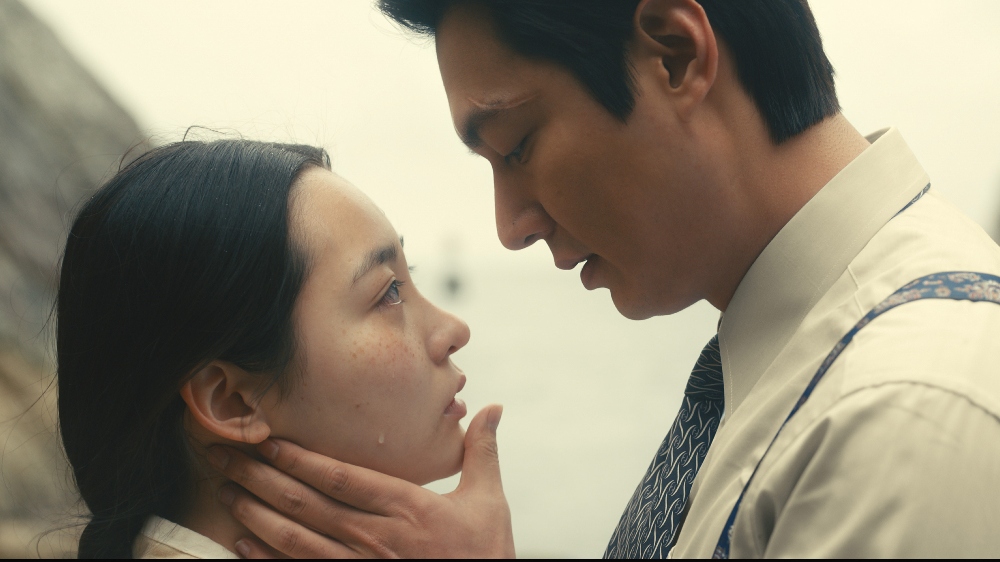
The sweeping saga of the new Apple TV+ series Pachinko begins in 1920s Korea, where a young girl named Sunja (Minha Kim) must explore her adolescence while under the colonial rule of Japan. She spots a wealthy, white-suited stranger across a crowded market, the dashing Hansu (Lee Min-ho), from which an epic story of forbidden love blossoms, as originally told in the 2017 New York Times bestseller by Min Jin Lee. Meanwhile, in 1989, we meet Sunja’s grandson, Solomon (Jin Ha), a Manhattan-based business mogul who returns to Japan to reunite with his Korean family and seal a deal that will set him up for a big promotion.
Creating the original music to tell this story over four generations, which journeys between Korea, Japan, and America in different time periods and places, posed a specific challenge for Composer Nico Muhly, who fine-tuned his passion for choral creations and sacred music during his time at Juilliard. Since then, his various commissions have included The Metropolitan Opera with Two Boys, (2011) and Marnie (2018); Carnegie Hall and the Los Angeles Philharmonic; as well as ballets for Paris Opera Ballet and New York City Ballet. He has also written film scores for The Reader, Kill Your Darlings, and the BBC adaptation of Howards End. Muhly might as well be the king of melancholy as his expertise lies in enhancing the sometimes tragic, emotional lives we see on the screen.
Below the Line spoke to Muhly via Zoom during holy week in Cambridge, England, where he was creating a ‘sad’ piece designed for Easter vigil. It couldn’t have been a more fitting setting to lead into a conversation about how he used harmonic language and orchestral themes to decipher between the past, the present, and the various timelines of Pachinko. Muhly spoke about working closely with Music Editor Suzana Peric to find the best cues for each scene, and how the music reflected the drama of the story and not necessarily its history.
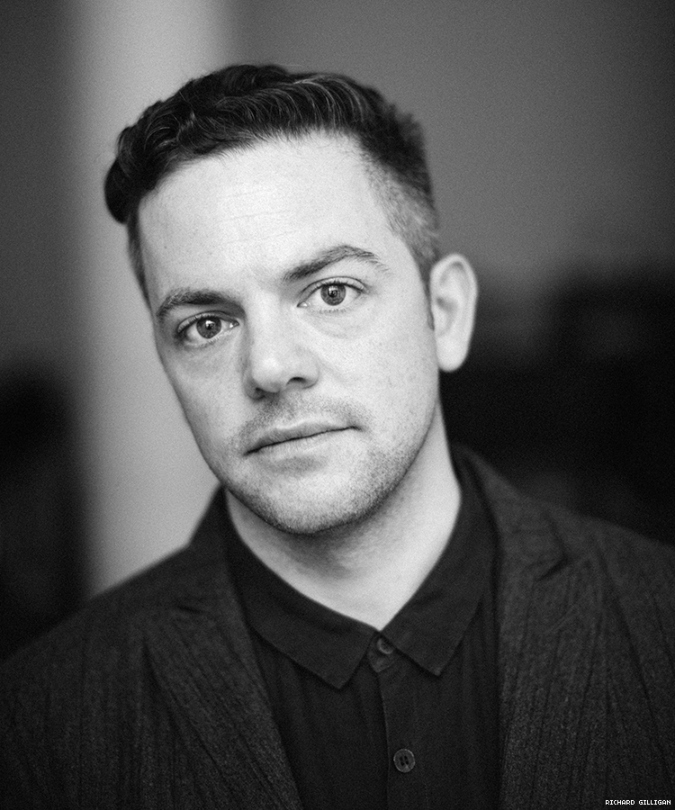
Below the Line: What is it about your style of music that matched the story of Pachinko, and were you familiar with the conflict described in the novel?
Nico Muhly: I realized I knew absolutely nothing about what happens in the novel of Pachinko. I went to like a fancy private high school so there’s no excuse for me not to know. Why was I not taught in high school about the Korean War, and why were we not taught as a precursor to that, about how Japanese colonialism works. There’s a huge amount of information that was not taught actively. All of this to say, I posted on Facebook asking if there is anything I should read about the colonial period and everyone recommended Pachinko. The showrunner, Soo Hugh, approached me, and she was my main point of contact throughout the whole thing. My sense is that she really responded to my choral music a bit and to my instrumental music. It was more about the music that I had written for the concert stage for sacred purposes.
BTL: What would you say was her main directive for the music?
Muhly: It was more about us establishing a consistent vocabulary for the score. There were a couple of complexities to it. Are there any themes? When I read the book I was actually really shocked by the script because the book is linear whereas the script each episode is in a million different places and time periods. You’re seeing Sunja in a million different ages, so the music has much more of a bridging role where you have to write pieces that are more like three-minute cues for all the temporal shifts.
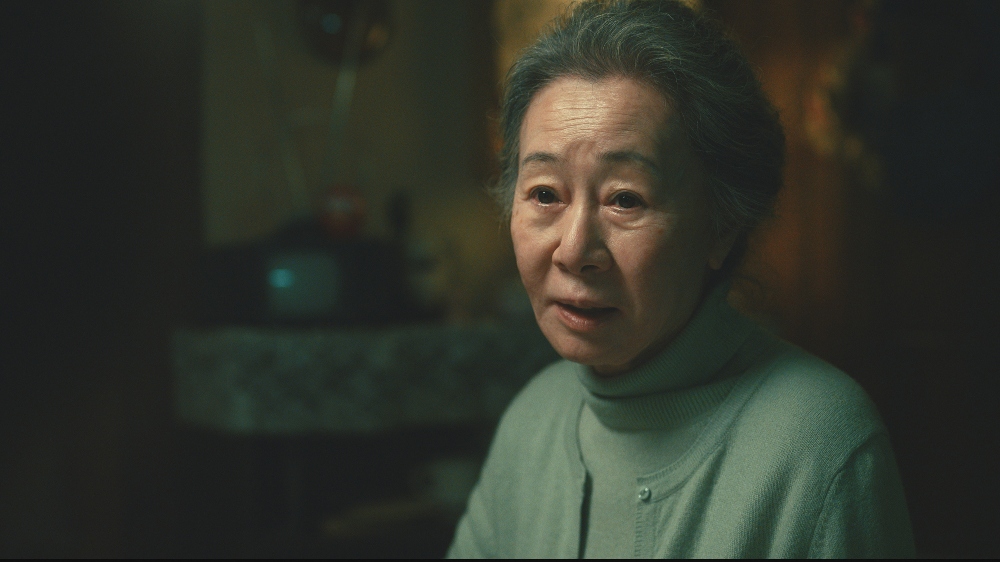
BTL: How did you solve this challenge?
Muhly: What I proposed is that I write something with a harmonic language which all came from the very first episode of Sunja as a little girl and then sort of expands out. The other thing I decided quite early on was that I would never do a thing where in the past the instruments were all acoustic and in the present, the instruments were all electronic. Because you’re bouncing between time frames I wanted to be with the characters pretty tightly, and sometimes capture the crazy terror of being a foreigner in Japan, or being an other in Japan and fear that you’re going to encounter the law.
BTL: Were you ever tempted to use the instruments of the time?
Muhly: It should go without saying that I’m one of very few non-Korean creatives on this project. One of the things I established right from the beginning was that I was not gonna use any instruments that reflect the musical ramifications of the colonial time. I thought that was much too outside of my brief. Once we established that, I just started writing themes that could be malleable and bend. I really wanted to treat this as a drama and not as a historical piece that required me to put an instrument of that time there.
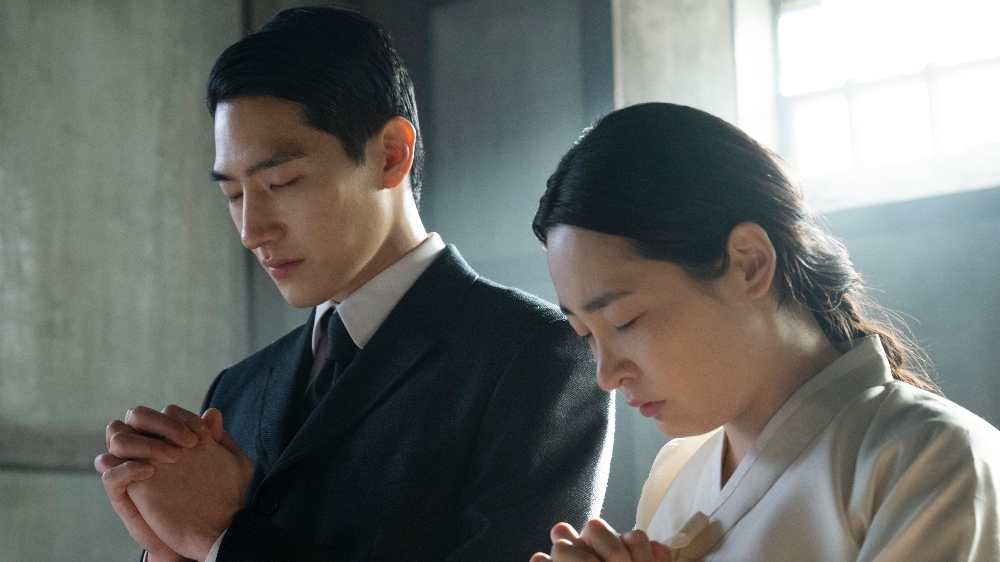
BTL: In light of that, what were the instruments that you used to create the score?
Muhly: The score at its largest is two pianos. There’s a small little army of synthesizers for subtle sounds. There’s nine strings which includes a solo violinist and a solo viola. Then there’s a flute which plays a pretty important role, oboe and clarinet. It’s a very tight and small ensemble.
BTL: Which cues were your favorites to score and why?
Muhly: There are a couple of montages where everyone is packing all in different time zones. It was the emotional context of packing was fun for me. I combined the sense of ritual and processing these little repeating triplets that comes out of a sort of minimalist tradition and then it just opens up to this big resolution. I really liked all the music where Hana is calling Solomon because those scenes are so intense. There is an office party where he gets on the phone with her where I used that kind of weaponized ambiguity which I feel I’m really good at. The scene where she opens her eyes and she’s on the train to Osaka is fun because it belongs to this one sound that you’ll hear over and over again which is whenever there’s a big chyron where they establish the time and where you are, Sue and I talked about it being kind of an Empire theme. These chords are kind of pillars of power structures that appear in those contexts which I love and are really fun to play.

BTL: What was the hardest scene for you to nail down?
Muhly: The first time that Sunja sees Hansu in the market because if you change one note of that thing and it says “he’s the big bad wolf, get outta there.” You change one note the other way and then it’s over-the-top. I tried a million different things and turned it into a kind of tango, weirdly. It was not what I expected to write, but in a strange way, it felt like the dance at the gym in West Side Story. It was very theatrical because he’s on that sort of passerelle and she’s on the other side of the market, and they see each other, and we the audience are witnessing this kind of dance between them. I don’t know what’s going on but people are obsessed with that dude!
BTL: Who else did you work closely with to create the music and how did that play out, so to speak?
Muhly: One of the most important parts of this process is the music editor Suzana Peric, who is just fantastic. She was such a good diplomat in that she would say “it was a beautiful cue but let’s try this a second later” or “let’s try this other thing five episodes from now.” Interestingly, there are a couple of cues, in the scene where Sunja and Hansu first have sex in the outdoors. I originally had something else for that which is a big cue but decided it wasn’t working in context so we put it aside. I wrote something else that worked great, and then we took that big cue that mushrooms and put it somewhere else.
BTL: Do you ever become precious about a piece of music that didn’t quite work?
Muhly: Most of my years writing things on commission, where no one ever hears it until the first rehearsal where they say you should change that. I actually welcome that form of interaction because I find that it’s my job to vanish into it and tell the story. Sometimes the best cues that I write would violate the fundamental rule of how score can work and how it should work in this piece which is that the music really can’t know something before the audience knows it. We know it’s a tragic story but I can’t just hit it with tragedy even when they’re just going about their business. With a project like this, the music has to be a halo around the characters. Sometimes that was my temptation — creating music where everyone is gonna die which I didn’t even present sometimes. I would write it and figure out, “ok cool, that was the wrong version.”
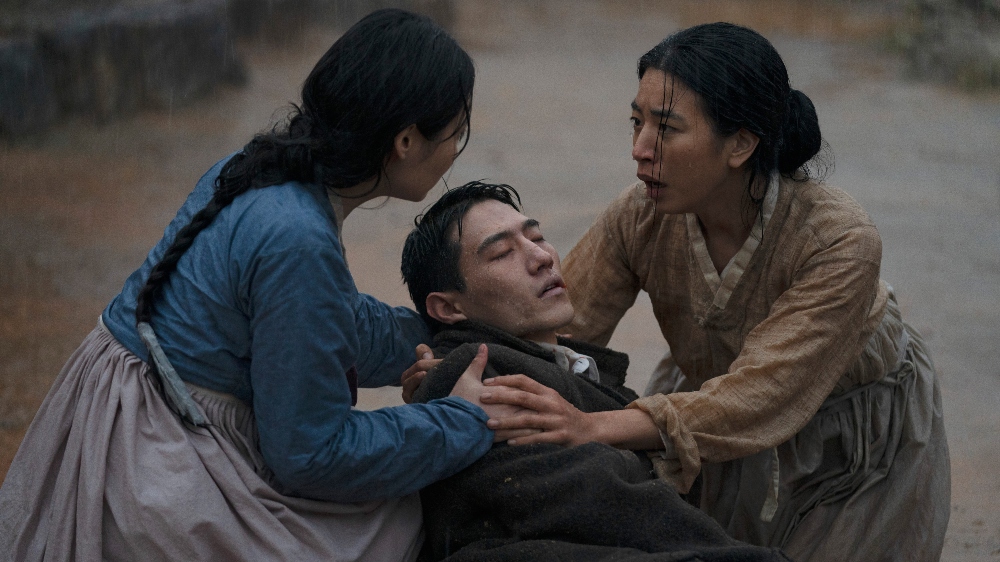
BTL: Can you talk about how the music was recorded, given the pandemic and everything?
Muhly: The recording process was 60 times more intense because of Covid. I play the piano so most of the recordings were remote like the oboe, and the flute. I had the strings in Alaska, nine strings in my studio in New York. Covid did make it really complicated because normally everyone gets together and you do it but with the winds, there’s a Covid delivery system through the flute and the trumpet. We had to do all those remotely and the oboe player was in Norway.
BTL: What do you hope that your music will convey to those who watch Pachinko?
Muhly: The music has to be in a very intimate dance with the picture, the words, and the whole experience. I want the music to be a good partner. I know for people who don’t speak Japanese or Korean that the music becomes a more important part of the story for them. The other thing I wanted to do is keep us focused on these characters and make it clear when a cue is illustrating something specific. I’ve had such nice reactions to the show from friends and family. I would love for people to think of the music as a wonderful bridge for the very beautiful way that the show is put together.
Season 1 of Pachinko is currently streaming on Apple TV+.





